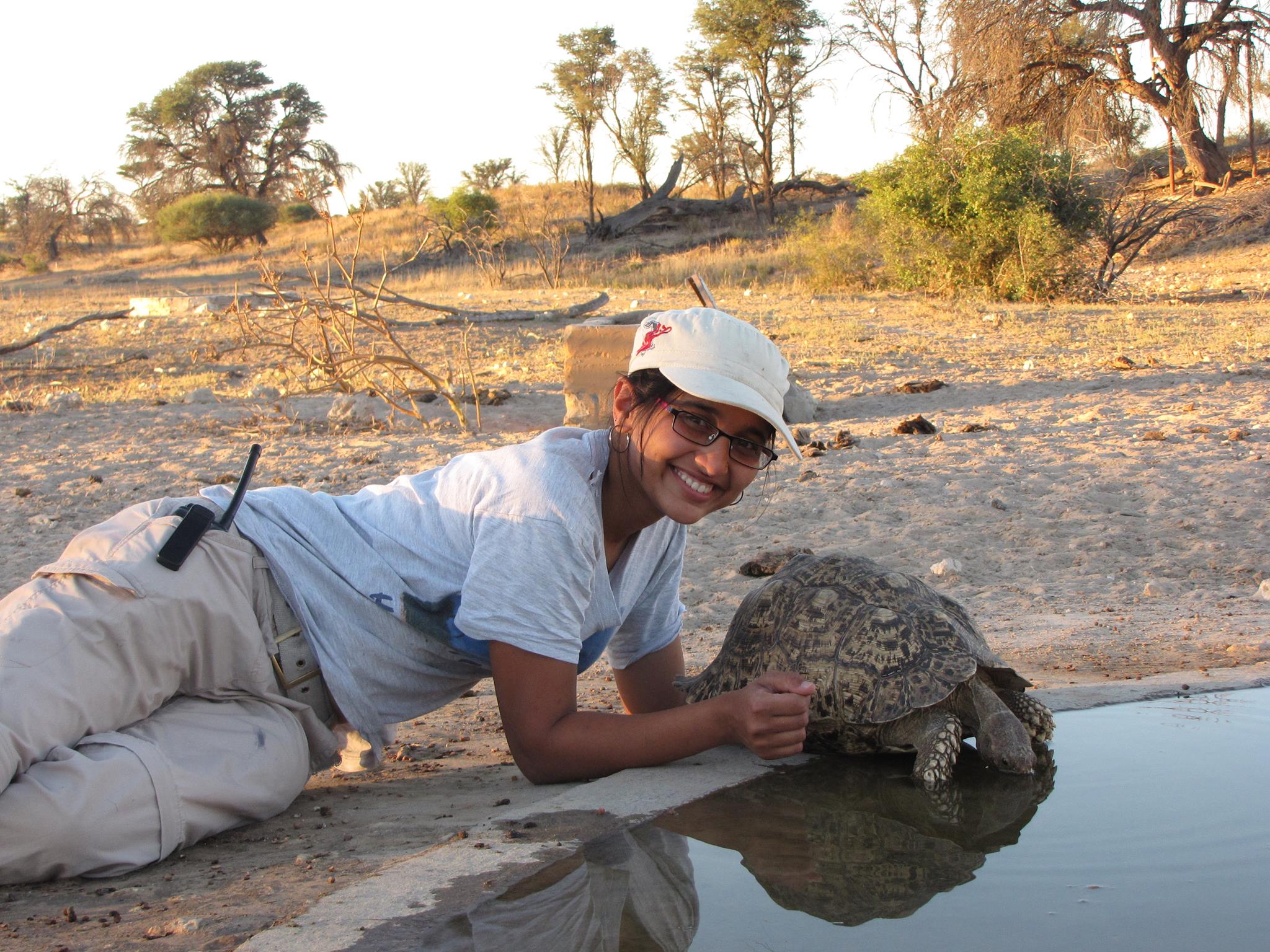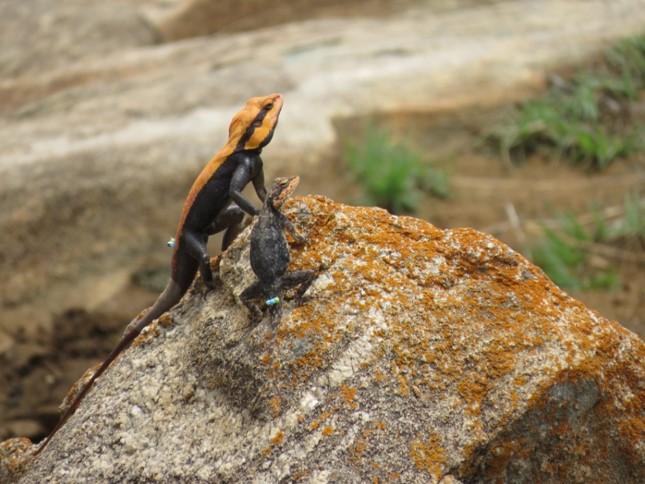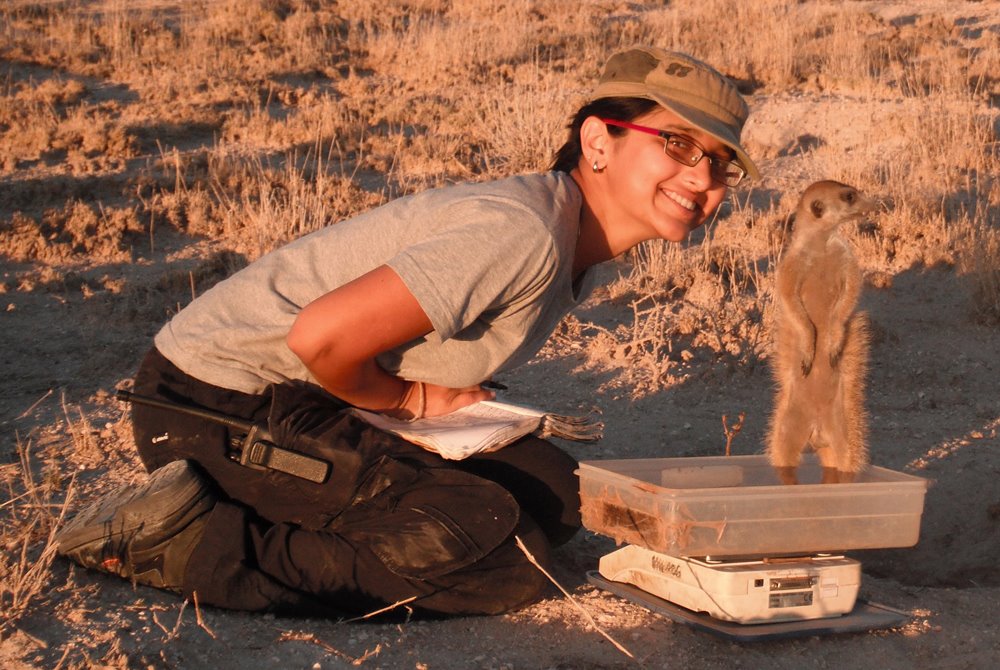We are looking back on some of our MSc graduates who have excelled in scientific research, ecology and conservation around the world since studying with us.
Today we meet Devica who having defended her PhD thesis in 2020 and recently founded EcoRE (Ecology Research Explained).

Hi Devica, it’s been a decade since you studied with us, why don’t you tell us a bit about your career in that time that led you to where you are now?
After graduating from the University of Exeter, I somehow felt that I was still not ready or experienced enough to take up a PhD position. So instead, I applied for a research volunteer position at the Kalahari Meerkat Project (Through the University of Cambridge). After spending a year at the project, I became a Research Assistant at Centre for Ecological Sciences (Indian Institute of Sciences) in India and simultaneously applied for PhD positions at Universities in England. Over the next two years I was offered positions, however being an International student, the fees were exorbitant, and I decided against it. I later applied for a PhD position at the Indian Institute of Sciences (IISc), which ranks top in India and high in the world as far as ecology is concerned. After going through a rigorous selection process, I was offered a PhD position in 2014 studying Intrasexual competition in females. I defended my PhD thesis last year and recently founded EcoRE (Ecology Research Explained).
Congratulations Devica! Why don’t you give us a bit of background about what made you choose to study your MSc with us at the University of Exeter Cornwall Campus?
 Honestly, I had done a lot of online research before finalising on the University of Exeter. I had applied to 5 different universities in the UK and got offers for all, however, I chose Exeter because the curriculum and course structure was extremely exciting! The whole course suited exactly what I was looking for. And of course, the Kenya field course was a cherry on the cake! Penryn campus is absolutely beautiful and extremely student friendly. To top it all, Exeter, provided scholarships which cover our full tuition fees, specifically for international students which were really very helpful!
Honestly, I had done a lot of online research before finalising on the University of Exeter. I had applied to 5 different universities in the UK and got offers for all, however, I chose Exeter because the curriculum and course structure was extremely exciting! The whole course suited exactly what I was looking for. And of course, the Kenya field course was a cherry on the cake! Penryn campus is absolutely beautiful and extremely student friendly. To top it all, Exeter, provided scholarships which cover our full tuition fees, specifically for international students which were really very helpful!
How do you think the MSc helped to prepare you for your career?
In India, during a Bachelor’s degree, we are taught and evaluated very differently. Coming from such a different background, the MSc course with Exeter taught me A LOT. The exposure I got, interactions with faculty members, of course the Kenya field course and even doing the assignments. Being an international student, the format of assignments was very new for me. I found it tough, but the amount I learnt was immeasurable! The skills right from writing, making posters, introduction to R, even soft skills like how to write a CV and SOP have been extremely valuable for me to shape my career so far.
That is wonderful to hear! What are you plans for the future?
I wish to popularise Ecological Research in India through EcoRE. Firstly, to make ecological research in India more accessible to the masses (non- ecologists and young students) though social media posts, YouTube videos and short articles and second, to guide students in India who are wanting to pursue ecology research early in their careers.

Lastly, do you have any advice for students looking to pursue a similar career?
Explore. Go out and observe nature. Read. Question. Volunteer (Even though we do not get ‘paid’, the amount of learning is infinite). Spend time on the internet looking for appropriate positions and opportunities. Do what you are doing with 100% dedication. Do not be intimidated. If you are thinking of joining the MSc course at Exeter, do not have any doubts. You will be in safe hands and will have NO regrets!
Thank you Devica!
If you want to read more profiles from MSc Evolutionary & Behavioural Ecology graduates follow this link or explore our Graduate in Focus homepage to learn more about the degree programmes we have on offer!

